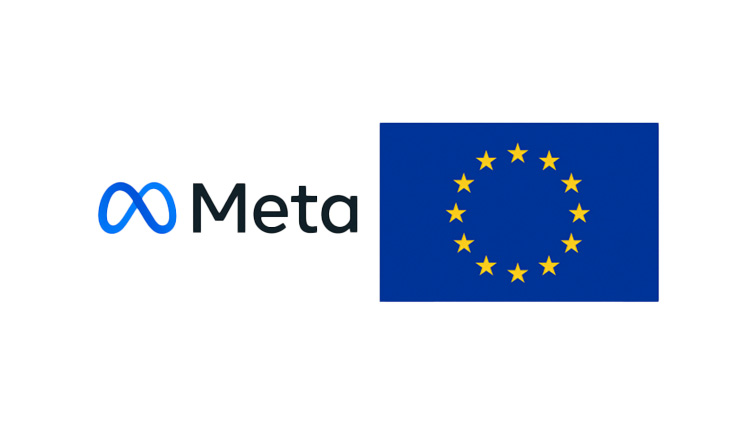
Meta has announced that it will commence utilizing publicly accessible data from European Union users to educate its artificial intelligence systems, mirroring practices already adopted by AI agents such as Microsoft Copilot, OpenAI, and Google. This change aligns with the anticipated 2025 rollout of Meta AI across 41 European nations and signifies the initial incorporation of EU users’ public Facebook and Instagram content into Meta’s generative AI advancements.
Unlike other AI companies that primarily use publicly available information from Europe, Meta’s transparency is unexpected given its past. This strategy mirrors Microsoft’s stance as outlined in their January 2025 blog post, where they express their intention to conform closely with the EU GDPR and AI Act regulations.
What data Is Meta Using — and what’s off-limits?
According to a statement in Meta’s press release, they plan to exclusively utilize openly accessible content for training their models. This encompasses videos, posts, comments, photos, captions, reels, and stories that are made publicly available. Furthermore, interactions with Meta AI such as questions and queries will also be used to refine their model.
It’s worth mentioning that Meta emphasizes they do not utilize private conversations among friends and family for training their AI models, which includes personal photos and videos as well. Furthermore, Meta assures that they will adhere to child data protection regulations by refraining from using any data from users under 18 years old in their model training process.
How Meta “justifies” training AI on EU data

Meta argues it’s crucial to educate their AI systems using a wide array of data from multiple countries, as this allows the AI to grasp intricacies and complexities that might be missed if they only collected data from the U.S. and UK. This approach enables their AI models to learn regional dialects, colloquial expressions, local knowledge, and distinct styles of humor, sarcasm, and conversational tones in different countries.
After an initial hold, Meta postponed the training of their large language models on public content within the EU, waiting for regulators to define the legal specifications. This action was taken as Meta’s initial approach was contested for potentially breaching the General Data Protection Regulation (GDPR) in mid-2024.
After that point, the European Data Protection Board (EDPB) has offered insights on employing personal data for Artificial Intelligence (AI) education. Although this is merely an opinion, it underscores the importance of:
1. “When it comes to training artificial intelligence, each situation requires individual evaluation.”
2. “It’s essential that data used for AI training is handled on a case-by-case basis.”
3. “For AI training purposes, every scenario necessitates careful examination.”
4. “When preparing data for AI learning, it should be scrutinized on an individual basis.”
Regarding the second statement:
1. “Data utilized in AI training must be stripped of personal identifiers to ensure it cannot be traced back to its original source.”
2. “For AI training purposes, data needs to be made anonymous or pseudonymous, so that it can’t be re-identified.”
3. “In order to protect privacy during AI training, data must be anonymized or pseudonymised, making it impossible to trace back the information to its original source.”
4. “For AI learning, data should be processed in a way that prevents re-identification by removing personal identifiers.”
According to Article 21 of the GDPR (General Data Protection Regulation), people are granted the ability to refuse the use of their personal data during AI training processes.
Meta acknowledges the viewpoint expressed by the EDPB and pledges to adhere strictly to European laws and regulations in the process of gathering data for training their artificial intelligence systems, demonstrating respect for the provided opinion.
But don’t worry, EU citizens can opt-out. Here’s how.
Meta assures users that the process of opting out of data collection will be simple and clear. Users will be prompted with in-app alerts and an email, detailing the nature of the data being gathered, its intended use – such as enhancing AI functionality at Meta and improving overall user experience – and the benefits it brings. These messages will also contain a link to a form, where individuals can express their preference not to have their data utilized for training AI models.
You have the option to bypass waiting for a form and instead, you can immediately file an objection request through Facebook or Instagram’s Privacy Center.
On Facebook: Navigate to: Settings and Privacy > Privacy Center > Privacy Themes > Artificial Intelligence at Meta > File a Dispute Request
On Instagram, navigate to the Settings menu, then select Privacy, followed by Privacy Centre. After that, choose Privacy Topics and find the section for AI at Meta. Here you can submit a request to object.
Meta assures that all previously submitted objections, along with any new ones, will be duly acknowledged and addressed.
Why this matters, and what comes next

Meta’s choice to educate its AI using data from EU users provided publicly isn’t entirely novel in practice – companies such as Microsoft, OpenAI, and Google have been doing so for years, particularly in the U.S. Yet, what sets Meta apart is a notably transparent and open approach in an area where AI advancements frequently surpass regulatory measures.
This point emphasizes the growing significance of European data in developing AI models that more accurately represent regional dialects, habits, and cultural nuances. Currently, many AI systems show a tendency favoring English and Anglo-centric views due to the widespread use of the language online.
It’s still uncertain whether Meta’s method will establish new norms across industries, but here’s the gist: If privacy concerns regarding your digital trace in the era of AI matter to you, it’s high time for action.
Read More
2025-04-27 19:39